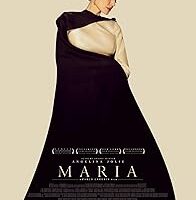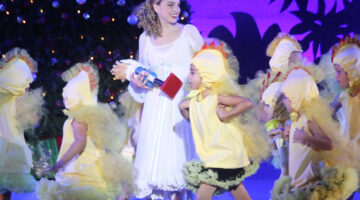One of the — if not the — wackiest novels ever written in the English language just has to be “Finnegan’s Wake” by James Joyce.
It took the Irish author of “Ulysses” 17 years to write and was published just two years before his death in 1941. Its first sentence is a continuation of the book’s last sentence and the entire thing is a mélange of puns and allusions and streams od consciousness that suggest the morning mind of an awakening H. C. Earwicker, or H.C.E. or Here Comes Everybody (who knows?) and it remains the one great book that’s been read by almost nobody.
More than that, “Finnegan’s Wake suggests the madness that encircled the Joyce family itself. Of his children by Nora Barnacle (“with a name like that she’ll surely stick to you,” said Joyce’s dad) (pun after pun in that household), James’ beloved daughter Lucia, the lover of Joyce’s secretary, Samuel Beckett, was locked up in an asylum for 30 years after the author of “Waiting for Godot” rejected her. Joyce’s son Giacomo married a manic-depressive and Joyce himself spent his final years polishing passages such as this (actually one long word and only partially shown here) from the “Wake:”
“Fallbababadalgharagh takamminarronn konn brontonner ronntuonnth unntrovarr hounawn skawn toohoohoorden thurnuk….”
Now steady yourself for the big news.
“Finnegan’s Wake” is being translated into Chinese.
Dai Congrong, vice dean of the Chinese Literature Department at Fudan University (she was born in1971) has just published the first third of her ongoing translation of “The Wake” and recently told a reporter, in a most Irish manner, “May God give me the courage to finish it.”
She took eight years to get this far, running a total of 775 pages in Chinese. “This book is like the curse of the pharaohs,” comments the Chinese scholar Shen Yun. “The first translator of the Japanese edition suddenly went missing, the second went mad and it took a third to finish the job.”
Dai Congron tells journalists that her work has already caused problems with her husband. “My body suffered from the work … I look older than I should. My eyes have become dark. My skin isn’t that good either.” But she proudly says of her work: “I cracked every word and every sentence; I found the logic linking the sentences.”
This worries Shen Yun: “Is it possible that ‘Finnegan’s Wake’ is really just a long message in code?”
*****
Now on to the movies: “Jodorowsky’s Dune” is a new film directed by Frank Pavich about a film that never was.
Back in the 1970s, Alejandro Jodorowsky, the Chilean-French filmmaker (“El Topo”) — and playwright, actor, author, musician, comic-book writer and spiritual guru — dreamed up a film adaptation of that classic sci-fi novel by Frank Herbert called “Dune.” He did succeed in raising prodigious amounts of money and even signed up Mick Jagger, Orson Welles and Salvador Dali as cast members before managing to spend millions of dollars without shooting a single frame. He never did raise the funds to start over.
Now 85, Jodorowsky is the featured entertainment in a film about his non-film, and evidently he’s still quite the character. Pavich also makes clear the true destiny of his doomed “Dune,” which deeply influenced later classics such as “Star Wars” and “Alien.” Apparently his story boards were widely circulated among other filmmakers at the time and even “lifted directly,” according to film historian David Thompson.
The documentary gets a five-star (98 percent) rating on Rotten Tomatoes. (The Dino De Laurentiis / David Lynch version of “Dune” that finally made it to the screen was a dud.)
*****
We are in receipt of the following corrective from reader Chris Rehm in regard to a recent Howelings reference to there being no extant Scottish language while there are living Welsh and Irish languages in Wales and Ireland:
“The way I understand it,” writes Chris, “the Scots actually do have their own language, native to Scotland: Gaelic, or Scottish Gaelic. Scottish Gaelic can still be found in the Scottish Highlands. The Scots as a whole migrated to Scotland from Ireland and their dialect is from the same strain as Irish Gaelic and very similar, unlike Welsh, which is a different dialect altogether, related to the Gaelic found in Brittany, France.
“In the Scottish Lowlands, English has been predominant for centuries. However, prior to that they did speak Scottish Gaelic. Other cultural similarities can also be found with the Irish and Scots: Kilts, bagpipes and whiskey (or whisky in Scots English) as well as the word used in a toast, the Irish/Scots Gaelic word ‘Slante.’”
*****
Quote for the Week:
“The Internet, as far as I know, does not exist in the real world. It is only a cloud in God’s heaven where the answers and references you want are dispatched in nanoseconds from some huge office with thousands of angelic clerks who neither sleep nor eat in their enthusiasm to be of immediate service … How can anyone understand any of it? It takes poetry to handle it.”
— Key West Poet Laureate Kirby Congdon in “Remarks and Reflections,” 2014
[livemarket market_name="KONK Life LiveMarket" limit=3 category=“” show_signup=0 show_more=0]




No Comment